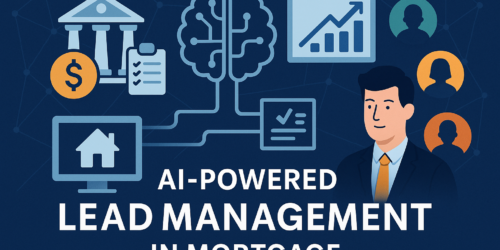What's in this article?
Artificial Intelligence (AI) and Machine Learning (ML) are no longer just buzzwords—they are powerful tools that can transform how you do business. Implementing ML and AI in business strategy can improve decision-making, enhance customer experiences, and drive growth. But where do you start? This article outlines the key elements of an effective AI/ML action plan to help you get started.
Want to learn how to see advanced business growth with AI? Schedule a Demo Today!
How AI and Machine Learning Applications Can Impact Your Business
AI and machine learning applications can benefit different areas of your business. Here are some practical ways these technologies can make a difference:
Improving Customer Experience
AI can analyze customer interactions to predict needs and personalize experiences. For instance, chatbots can handle customer inquiries, while ML algorithms can recommend products based on past behavior. This can lead to higher customer satisfaction and loyalty.
Optimizing Operations
AI can automate routine tasks like data entry, and scheduling, or even more complex processes like supply chain management. Predictive maintenance, powered by ML, can help you anticipate equipment failures before they happen, reducing downtime and saving costs.
Enhancing Decision-Making
AI can process vast amounts of data faster and more accurately than any human. It can provide actionable insights to help you make better business decisions. For example, predictive lead scoring can prioritize leads that are most likely to convert, improving your sales efficiency.
Boosting Marketing Efforts
AI can help identify which marketing channels and messages resonate most with your target audience. It can optimize ad placements, content strategies, and even email campaigns, ensuring your marketing efforts reach the right people at the right time.
Improving Financial Forecasting
AI and ML models can analyze historical financial data to provide more accurate forecasts and detect patterns that may not be visible through traditional methods. This helps businesses make more informed budgeting and investment decisions.
Read More: How AI Is Redefining the CRM Landscape: A New Era in Customer Relations
Elements of an Effective AI/ML Action Plan
Implementing AI/ML into your business doesn’t have to be overwhelming. A clear action plan can help you integrate these technologies smoothly and effectively. Here are the key elements to consider:
Identify Business Goals
Identify the specific problems you want to solve or the areas you want to improve. Do you want to increase sales, reduce operational costs, or enhance customer service? Be specific about your objectives to guide your AI/ML strategy.
Assess Your Data
AI and ML thrive on data. Evaluate the quality and quantity of your data to ensure it’s sufficient for training AI models. Clean, organized data is crucial for getting accurate results. If your data is incomplete or inconsistent, improve it before moving forward.
Choose the Right Tools and Partners
Many AI/ML tools are available, ranging from off-the-shelf solutions to custom models built by AI experts. Choose tools that align with your business goals and can be integrated into your existing systems. Partner with a company with expertise in AI/ML to avoid common pitfalls. They will also serve as an AI Implementation guide.
Implement and Test
Start with a pilot project to test the technology’s effectiveness in a controlled environment. Choose a specific business area, such as lead scoring or customer service, and follow your AI implementation guide to integrate the model. Monitor the results, adjust as needed, and scale up once you see success.
Train Your Team
Your team must understand how to use AI/ML tools effectively. Provide training and support to ensure they are comfortable with the technology and can leverage it to its full potential. This will also help ease any fears or resistance to adopting new tools.
Measure Success and Iterate
Use key performance indicators (KPIs) to measure the impact of AI/ML on your business. Track metrics like conversion rates, customer satisfaction, and operational efficiency to see if you’re meeting your goals. Use these insights to refine your strategy and make continuous improvements.
Making AI Work for Your Business
Implementing ML and AI in business strategy isn’t just about technology; it’s about transforming how your business operates. It’s important to start small, learn from the process, and then scale up as you see success. AI business growth is essential in uncovering new opportunities, streamlining operations, and driving success.
For example, AI can predict which marketing campaigns will generate the most leads, or it can help you understand customer behavior patterns to improve your product offerings. The possibilities are endless, but the key is to have a clear plan and the right tools to execute it.
Imagine using AI to optimize your entire sales process, from identifying high-potential leads to automating follow-ups and tracking conversions. This can drastically reduce manual work, allowing your team to focus on building relationships and closing deals.


